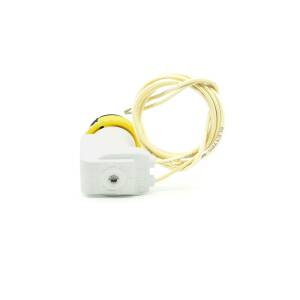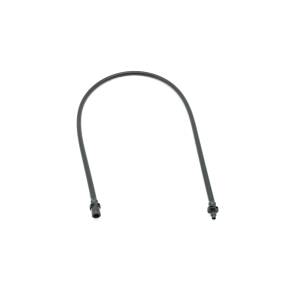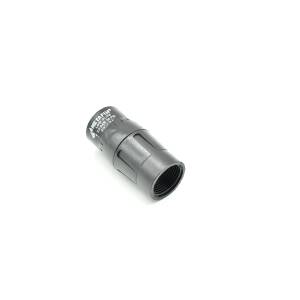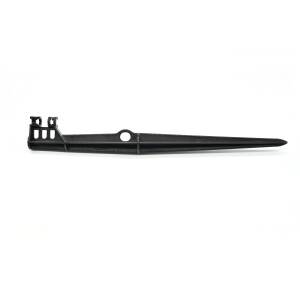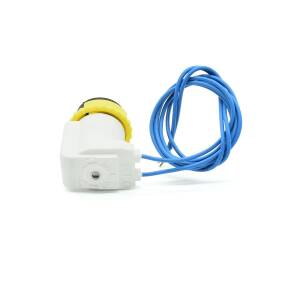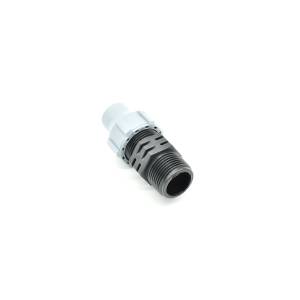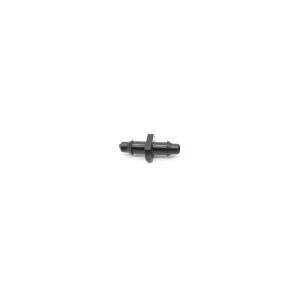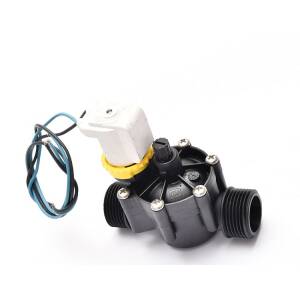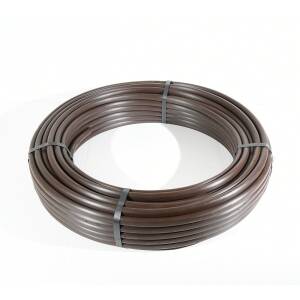
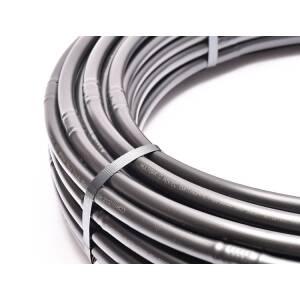


Frequently Asked Questions (FAQs)
Efficient irrigation in agriculture ensures stable yields and compensates for precipitation deficits. Modern techniques minimize water loss and provide plants with the moisture they need. This keeps the soil fertile and the crops resilient to dry periods.
Different systems are used depending on the crops and the size of the area. Drip irrigation is particularly suitable for fruit, vegetables and potato production, while irrigation machines are ideal for large-scale arable farming and cereals. Surface irrigation can also be useful in some regions. The importance of irrigation in arable farming is particularly evident in the increase in yields and the assurance of an adequate water supply.
Yes, with the DVS irrigation planner you can optimally design your own irrigation system. The Plug&Rain® modular system makes installation significantly easier. This allows farmers to flexibly adjust their irrigation.
Automatic irrigation systems ensure that water is distributed as needed, save labor and optimize the use of energy and resources. At the same time, costs are reduced by precisely calculating and regulating water demand. Various irrigation techniques, such as drip and sprinkler irrigation, offer different efficiency advantages.
A consistent water supply maintains the structure of the soil, prevents erosion and ensures optimal water distribution in the field. Efficient irrigation technology can help to maintain soil quality in the long term.
DVS Beregnung offers a wide range of irrigation technology for agricultural applications. Order conveniently online and benefit from fast delivery and expert advice.
Introduction to irrigation
Irrigation is a crucial part of agriculture to ensure the production of food. It involves the artificial distribution of water over agricultural land with the aim of supporting the growth of crops and maximizing crop yields. In times of irregular rainfall and increasing drought, a reliable water supply is essential. With targeted irrigation, farmers can optimize the distribution of water on their land and thus increase the productivity of their crops.
Definition and importance of irrigation
Irrigation is the artificial distribution of water to agricultural land to supplement or replace natural precipitation. It is of vital importance to agriculture, as it allows farmers to get the full benefit of their fields and maximize crop yields. Without an adequate water supply, plants cannot grow optimally, resulting in lower yields. Irrigation allows farmers to precisely control the amount of water, better meeting the needs of their crops.
Agricultural irrigation planning and product selection
Careful planning is essential to using water efficiently and maximizing yield. Take into account factors such as soil conditions, precipitation, water abstraction and water volumes. Different crops have specific growing needs that require an optimal water supply, especially during periods of drought. Various sources such as wells, natural and artificial water bodies, and municipal water networks can be used for water abstraction. With the DVS irrigation planner, you can take all the relevant parameters into account.
Efficient use of water is of great importance in agriculture to optimize yields and take economic aspects into account.
What systems are available?
- Drip irrigation: Perfect for fruit, vegetables and potato production. This method emphasizes the efficient use of water and minimizes water consumption.
- Sprinkler machines: Ideal for large fields, arable farming and cereals.
- Subsurface irrigation: A sustainable solution for direct root watering.
- Automatic controllers: Allow for precise water delivery and save energy.
Types of irrigation systems
There are different types of irrigation systems that are ideal depending on the specific conditions and requirements.
Drip irrigation, sprinkler irrigation and more
Drip irrigation is particularly efficient because it delivers water directly to the plants' roots, minimizing water use. This method is excellent for fruit, vegetables and potato production. By contrast, sprinkler irrigation distributes water evenly over the entire area and is ideal for large-scale arable farming and cereals. Other irrigation systems include subsurface irrigation, which offers a sustainable solution for direct root watering, and automatic controllers, which enable precise water supply and save energy. Each of these systems has its own advantages and can be selected according to the specific requirements of the crops and land.
Intelligent irrigation systems
Smart irrigation systems use the latest technology, such as sensors and computer algorithms, to optimally control the water supply to plants. These systems are highly developed and automatically optimize the water supply to plants based on real-time data. Using smart irrigation systems can save water, prevent water loss and provide plants with optimal care. Sensors continuously measure soil moisture, weather conditions and other relevant parameters to precisely control irrigation. Tilling and the use of soil sensors are also important aspects of smart irrigation systems. These technologies help maximize irrigation efficiency while minimizing environmental impact.
Installing and operating an irrigation system
With the Plug&Rain® system, installation is particularly easy. This is how you proceed:
- Plan the pipes based on the area, crops and source.
- Install the main pipes and connections.
- Install sprinklers or drip hoses.
- Connect to an automatic control system.
- Test run and fine-tune for optimal irrigation efficiency.
Regular maintenance and adjustment to weather conditions will help your system perform over the long term.
 Free Online Irrigation-Planner
Free Online Irrigation-Planner









